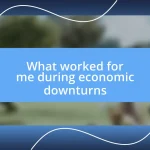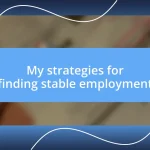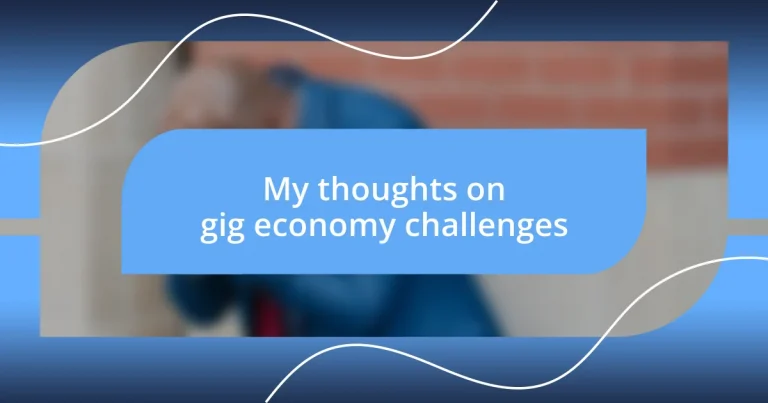Key takeaways:
- Gig economy workers face significant challenges, including inconsistent income that impacts financial stability and mental well-being.
- The lack of traditional employment benefits, such as health insurance and retirement plans, poses additional risks for gig workers.
- Isolation in the gig economy can lead to feelings of disconnection, negatively affecting both productivity and overall well-being.
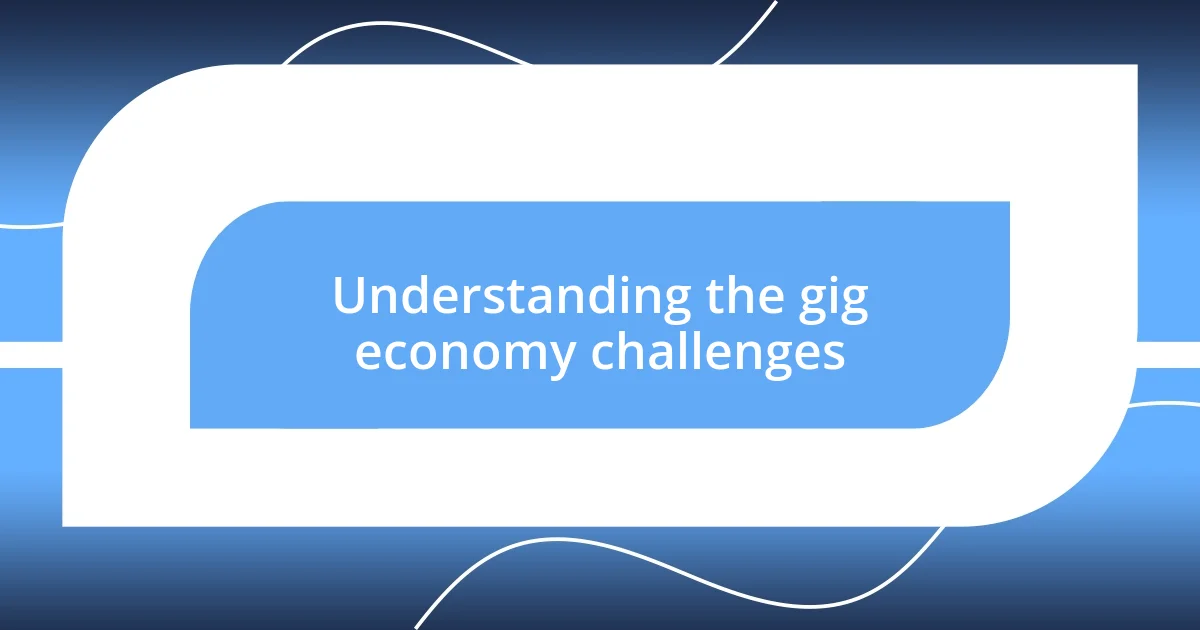
Understanding the gig economy challenges
Navigating the gig economy can feel overwhelming at times, particularly when it comes to inconsistent income. I remember a period when my earnings fluctuated drastically from one month to the next, leading to sleepless nights filled with anxiety over bills. Isn’t it unsettling to think that your financial security rests on unpredictable shifts in demand?
Additionally, the lack of benefits like health insurance or retirement plans is a significant challenge for gig workers. I once found myself in an emergency situation without adequate coverage, which made me realize how crucial these safety nets are. How do we truly thrive when the safety nets that traditional jobs provide are missing from our gig roles?
Moreover, isolation can creep in as a hidden struggle within this economy. Many gig workers often work alone, which can create a sense of disconnect from a community. Have you ever found yourself longing for that casual camaraderie found in a typical office environment? It’s a challenge that we must confront if we’re to enhance not only our productivity but also our overall well-being.
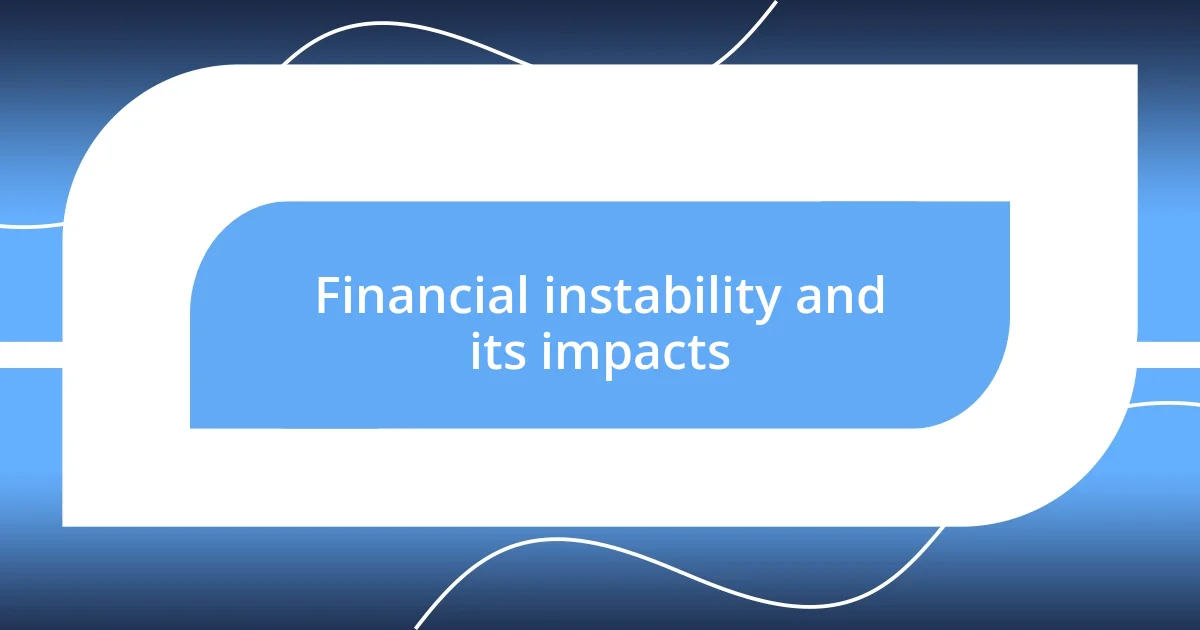
Financial instability and its impacts
Financial instability is perhaps the most daunting aspect of gig work. I’ve had months where I barely scraped by, constantly juggling bills and putting off necessary expenses. It’s incredible how quickly worry can set in when you’re not sure where your next paycheck will come from, isn’t it?
The impact of inconsistent income goes beyond just budgeting; it seeps into mental well-being too. I’ve found myself spiraling into stress, which affected my focus and creativity. How can we truly excel in our work when we’re grappling with the anxiety of uncertain finances?
Additionally, this instability can foster a sense of guilt and inadequacy among gig workers, especially when comparing ourselves to more traditional employees. I often catch myself wondering if I’m somehow failing because my income fluctuates so much. What kind of message does that send about our worth and contributions? It’s a heavy burden we carry alongside our jobs.



